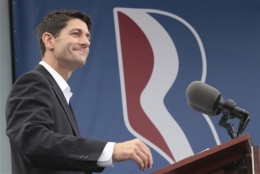Congress
-
Spa treatments, concert tickets and helicopter and stretch limo rides — the initial details in a Veterans Affairs' Office of the Inspector General investigation could overshadow the GSA conference spending scandal.
August 20, 2012 -
Federal workers are going to be doing the limbo on a hot seat for much of the rest of the year, says Senior Correspondent Mike Causey. Will sequestration kick in with its major across-the-board cuts, will the continuing resolution save the day and what if nothing happens, which seems to be what happens a lot these days?
August 17, 2012 -
President Barack Obama has signed a law delaying an expansion of the STOCK Act that would have published the financial records of thousands of top managers throughout the executive and legislative branches in an online, searchable database.
August 16, 2012 -
Coming soon...maybe...to a federal agency near you: Sequestration. Everybody is talking about it and nobody is doing anything about it. Congress set up the Dr. Strangelove-like time bomb to force it to do something...but so far nobody is doing anything but warning about federal furloughs and layoffs that could also devastate the contractor community.....
August 15, 2012 -
The Office of Personnel Management released a factsheet to federal agencies in July explaining what phased retirement is and how it will work.
August 14, 2012 -
Mitt Romney's vice-presidential nominee, Rep. Paul Ryan (R-Wis.), was the main architect of a budget plan that would slash federal benefits and would extend the pay freeze.
August 14, 2012 -
If you've been in government for a while, you are accustomed to operating without a budget...but every time Congress fails to do its job, federal agencies, federal workers and federal taxpayers suffer...
August 14, 2012 -
Sens. Carl Levin (D-Mich.) and John McCain (R-Ariz.) sent a letter to the Defense Secretary Panetta and Secretary of State Clinton asking them to consider further actions against contractor Pratt & Whitney Canada. P&WC pleaded guilty in June to illegally exporting military software to China.
August 13, 2012 -
Vietnam Veterans of America alleges the Veterans Affairs Department's service-disabled veteran-owned business set aside program is keeping legitimately qualified companies from competing for VA contracts. The group advocates loosening a rule that requires service-disabled veterans maintain unconditional control of all business decisions.
August 13, 2012 -
A Gallup poll finds that 54 percent of Americans think the Transportation Security Administration is doing a good or excellent job.
August 10, 2012 -
While some federal agencies are offering buyouts ranging from $15,000 to $25,000, the giant Social Security Administration is trying a new approach: No Cal buyouts. Senior Correspondent Mike Causey says if they catch on, your agency may be next.
August 10, 2012 -
The Project on Government Oversight reviewed the size of five of the largest defense contractors and found three of the five were reducing their workforces even as the Defense Department's procurement budget ballooned between 2006 and 2011.
August 09, 2012 -
Army Under Secretary Joseph Westphal said if the automatic spending cuts known as sequestration go into effect, the impact to the Defense Department will be "devastating." At the same time, the DoD still must plan for cuts as tight budget continue and combat operations shrink.
August 08, 2012 -
The payroll tax cut deal made earlier this year included provisions to increase new federal employees' retirement contributions. We've posted a chart detailing how much employees and agencies will contribute.
August 07, 2012 -
Defense Secretary Leon Panetta says it's now clear another round of BRAC isn't in the cards in the immediate future, but maintains it will be necessary to keep a "balanced force."
August 07, 2012



